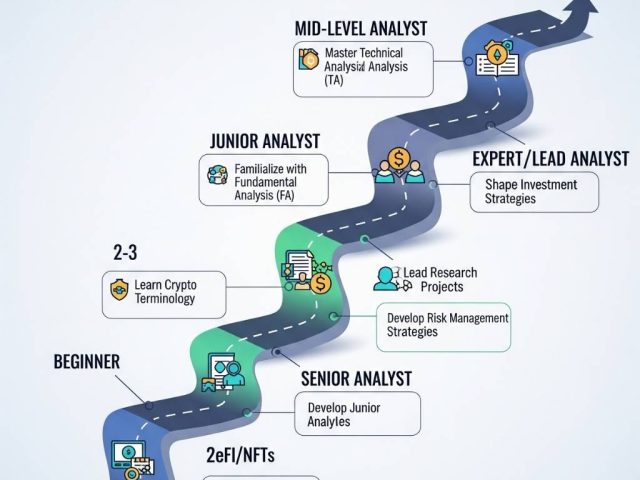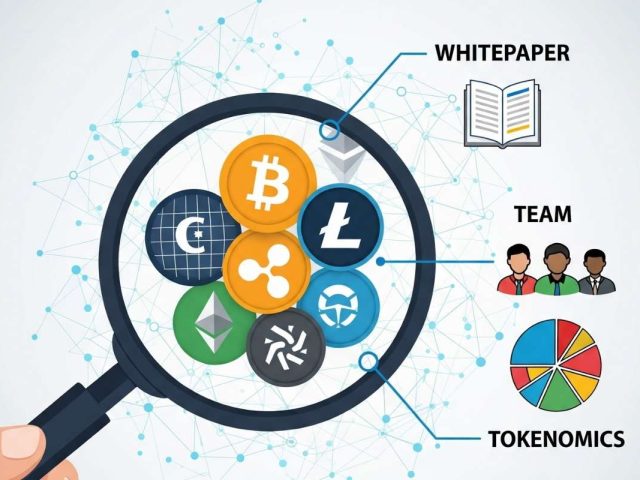What is Akash Network?
Akash Network is an open network that lets users buy and sell computing resources securely and efficiently. It is a public utility that allows users to deploy applications in a secure, censorship-resistant manner. Akash Network is built on Kubernetes and offers features like persistent storage, dedicated IP leasing, and permissionless access.
Key Features of Akash Network
Decentralized and open-source infrastructure
Akash Network is an open-source, decentralized compute marketplace that allows users to buy and sell computing resources securely and efficiently. It is built on the Cosmos SDK and is the first blockchain to achieve IBC communication with Cosmos Hub, enabling seamless connections to other IBC compatible blockchains.
Key Features of Akash Network
Decentralized and open-source infrastructure: Akash Network is an open-source, decentralized compute marketplace that allows users to buy and sell computing resources securely and efficiently. It is built on the Cosmos SDK and is the first blockchain to achieve IBC communication with Cosmos Hub, enabling seamless connections to other IBC compatible blockchains.
Secure and transparent transactions: Akash Network utilizes a Byzantine Fault Tolerance (BFT) consensus mechanism to ensure the security and immutability of transactions. All transactions on the network are publicly verifiable, providing transparency and accountability.
Cost-effective cloud computing solutions: Akash Network leverages a unique auction mechanism to enable providers to offer their computing resources at competitive prices. Consumers can then bid on these resources, ensuring that they only pay for the resources they actually use.
High scalability and elasticity: Akash Network is designed to be highly scalable and elastic, meaning that it can easily accommodate changes in demand for computing resources. This is made possible by the network’s decentralized nature and its use of containerization technologies like Docker.
User-friendly interface: Akash Network offers a user-friendly interface through Cloudmos Deploy, a web-based application that simplifies the deployment process for users. Additionally, Akash CLI provides a command-line interface for more advanced users.
Additional features:
- Manifest file: Akash Network utilizes a manifest file written in a declarative language called Software Definition Language (SDL) to define deployment services, datacenters, requirements, and pricing parameters.
- Cloudmos Deploy: Cloudmos Deploy is a web-based application that simplifies the deployment process for users.
- Akash CLI: Akash CLI is a command-line interface that allows users to install, create and fund an account, and deploy applications.
Benefits of Using Akash Network
For Providers
- Earn passive income: Providers can list their unused computing resources on the Akash Network and earn AKT tokens whenever their resources are used. This allows them to monetize their idle resources and generate additional revenue.
- Reach a wider audience: Akash Network connects providers to a global pool of potential customers, allowing them to reach a wider audience than they could through traditional channels.
- Reduce costs: By eliminating the need for intermediaries, Akash Network can help providers reduce their operational costs.
- Increased efficiency: Providers can leverage Akash Network’s automated auction system to efficiently manage their resources and ensure that they are always being utilized to their full potential.
For Consumers
- Cost-effective: Akash Network allows consumers to access computing resources at competitive prices through its unique auction system. Consumers only pay for the resources they actually use, which can lead to significant cost savings compared to traditional cloud providers.
- Increased choice and flexibility: Consumers have access to a wider range of computing resources from a variety of providers on Akash Network. This allows them to choose the resources that best meet their needs and budget.
- Transparency and security: Akash Network utilizes blockchain technology to ensure the transparency and security of all transactions. Consumers can be confident that their data is secure and that they are getting the resources they pay for.
- Censorship resistance: Unlike traditional cloud providers, Akash Network is resistant to censorship. This means that consumers can be sure that they will always have access to the resources they need, regardless of their location or the content they are deploying.
How Akash Network Works
Akash Network operates as a decentralized marketplace that facilitates the secure and efficient buying and selling of cloud computing resources. Here’s a breakdown of the process:
1. Defining Requirements:
- Users specify their computing needs in a manifest file written in the Software Definition Language (SDL). This file outlines details like:
- Deployment services
- Datacenters
- Resource requirements
- Pricing preferences
2. Provider Setup:
- Providers set up and manage their own Kubernetes clusters, which are essentially groups of interconnected computers that function as a single system. These clusters act as the computing resources available on the Akash Network.
3. Matching Needs with Resources:
- Akash Network acts as a bridge, connecting users (deployers) with providers who have the necessary computing resources. The network utilizes a unique auction system to match deployers’ requirements with the most suitable provider offerings based on factors like price, location, and resource specifications.
4. Secure Transactions:
- Once a match is established, the deployment process is initiated. Akash Network leverages blockchain technology to ensure the security and immutability of transactions. This means that all interactions between deployers and providers are recorded on a public ledger, guaranteeing transparency and accountability.
5. Payment and Reward System:
- Providers are rewarded with AKT, the native token of the Akash Network, when their computing resources are chosen by a deployer. This incentivizes providers to maintain their clusters and offer competitive pricing.
Additional Notes:
- Akash Network utilizes a Byzantine Fault Tolerance (BFT) consensus mechanism to ensure the security and reliability of the network.
- The network’s decentralized nature eliminates the need for intermediaries, reducing costs and inefficiencies.
Akash Network Token (AKT)
AKT is the native utility token of the Akash Network ecosystem. It plays several crucial roles within the platform:
1. Facilitating Transactions: AKT serves as the primary medium of exchange for all transactions occurring on the Akash Network. This includes payments made by deployers for utilizing computing resources, as well as rewards distributed to providers for offering their resources.
2. Governance: AKT token holders have the right to participate in the governance of the Akash Network. They can vote on critical proposals that shape the future development of the platform, such as upgrades, fee structures, and network parameters.
3. Staking: AKT tokens can be staked by users to contribute to the security of the network. Stakers earn rewards for contributing to the consensus mechanism, further incentivizing community participation and network decentralization.
4. Accessing Advanced Features: Certain advanced features and functionalities within the Akash Network, such as dispute resolution mechanisms, might require users to hold or stake a minimum amount of AKT tokens.
5. Tokenomics:
- Total Supply: 1,000,000,000 AKT
- Token Distribution:
- 60% – Community Reserve
- 15% – Team & Advisors
- 10% – Seed & Private Sale
- 10% – Ecosystem Fund
- 5% – Public Sale
6. Acquiring AKT:
AKT can be acquired through various means, including:
- Purchasing on cryptocurrency exchanges: Several major cryptocurrency exchanges list AKT, allowing users to buy it with other cryptocurrencies or fiat currency.
- Participating in the Akash Network: Providers earn AKT as rewards for sharing their computing resources, while delegators can earn staking rewards by contributing to network security.
- Participating in future token generation events: Akash Network may conduct additional token generation events in the future, which could offer another avenue for acquiring AKT.
Additional Notes:
- AKT token price and market capitalization are constantly fluctuating; you can find the latest information on websites like CoinGecko or Binance.
- Thorough research and due diligence are crucial before investing in any cryptocurrency, including AKT.
The Team Behind Akash Network
Akash Network is being built by a passionate and experienced team with a proven track record in technology and entrepreneurship. Here are some key members:
- Dr. Daleen Musser (CEO): Daleen is a computer scientist and entrepreneur with extensive experience in distributed systems and cloud computing. He previously co-founded Tendermint, a core development team behind the Cosmos blockchain ecosystem.
- Adam Levine (CTO): Adam is a seasoned software engineer with a strong understanding of blockchain technology and distributed systems. He has held leadership positions at various tech companies and brings valuable expertise to Akash Network’s technical development.
- Joe Davies (COO): Joe brings extensive experience in business development and operations to the Akash Network team. He has a successful track record of growing startups and scaling operations.
- Other Team Members: The Akash Network team consists of several talented engineers, researchers, and marketing professionals, all contributing to the project’s growth and development. You can find a more comprehensive list of team members and their profiles on the Akash Network website.
Project Roadmap and Future Plans:
The Akash Network team continuously updates its roadmap, outlining key milestones and future development plans. Some of their current focuses include:
- Expanding ecosystem partnerships: Integrating with more blockchains and projects within the Cosmos ecosystem and beyond.
- Enhancing user experience: Improving the user interface and functionalities of Cloudmos Deploy and Akash CLI for both providers and consumers.
- Scaling the network infrastructure: Continuously optimizing the network’s performance and scalability to handle growing demand.
- Exploring new use cases: Identifying and implementing innovative applications for Akash Network technology, potentially expanding beyond cloud computing.
For the latest updates on the project roadmap and future plans, it’s recommended to refer to the official Akash Network website and community channels.
Conclusion
Akash Network represents a revolutionary approach to cloud computing by leveraging blockchain technology to create a decentralized, secure, and cost-effective marketplace. As the project continues to evolve and attract users, it has the potential to disrupt the traditional cloud computing landscape, offering benefits to both providers and consumers seeking a more efficient and transparent alternative.
FAQs
1. What are the advantages of using a decentralized cloud computing platform like Akash Network?
Compared to traditional cloud providers, Akash Network offers several advantages, including:
- Cost-effectiveness: Utilizing an auction system allows users to access computing resources at competitive prices.
- Transparency and security: Blockchain technology ensures transparency and immutability of transactions, fostering trust and security.
- Decentralization: Eliminates reliance on single entities, reducing censorship risks and promoting network resilience.
- Increased efficiency: Enables providers to monetize idle resources and allows consumers to pay only for what they use.
2. How does Akash Network ensure the security of transactions?
Akash Network utilizes a Byzantine Fault Tolerance (BFT) consensus mechanism to guarantee the security and reliability of transactions. Additionally, all interactions on the network are recorded on a public ledger, ensuring transparency and accountability.
3. What are the future plans for the Akash Network project?
The Akash Network team is continuously working on expanding the ecosystem, enhancing user experience, scaling the network infrastructure, and exploring new use cases for the technology. You can find the latest roadmap and plans on the official Akash Network website.
4. How can I learn more about Akash Network?
Here are some resources to learn more about Akash Network:
- Akash Network website: http://akash.network/
- Akash Network whitepaper: https://docs.akash.network/
- Akash Network blog: https://medium.com/stakin/introduction-to-akash-network-7823d379c1cc
- Akash Network on Twitter: https://twitter.com/akashnet_?lang=en
5. Is Akash Network a good investment?
Disclaimer: I cannot provide financial advice, and this content should not be considered investment advice. As with any investment, thorough research and due diligence are crucial before making any investment decisions.
I hope this blog provides a comprehensive and informative overview of Akash Network. Please feel free to check our comprehensive Research Report On Akash Network





